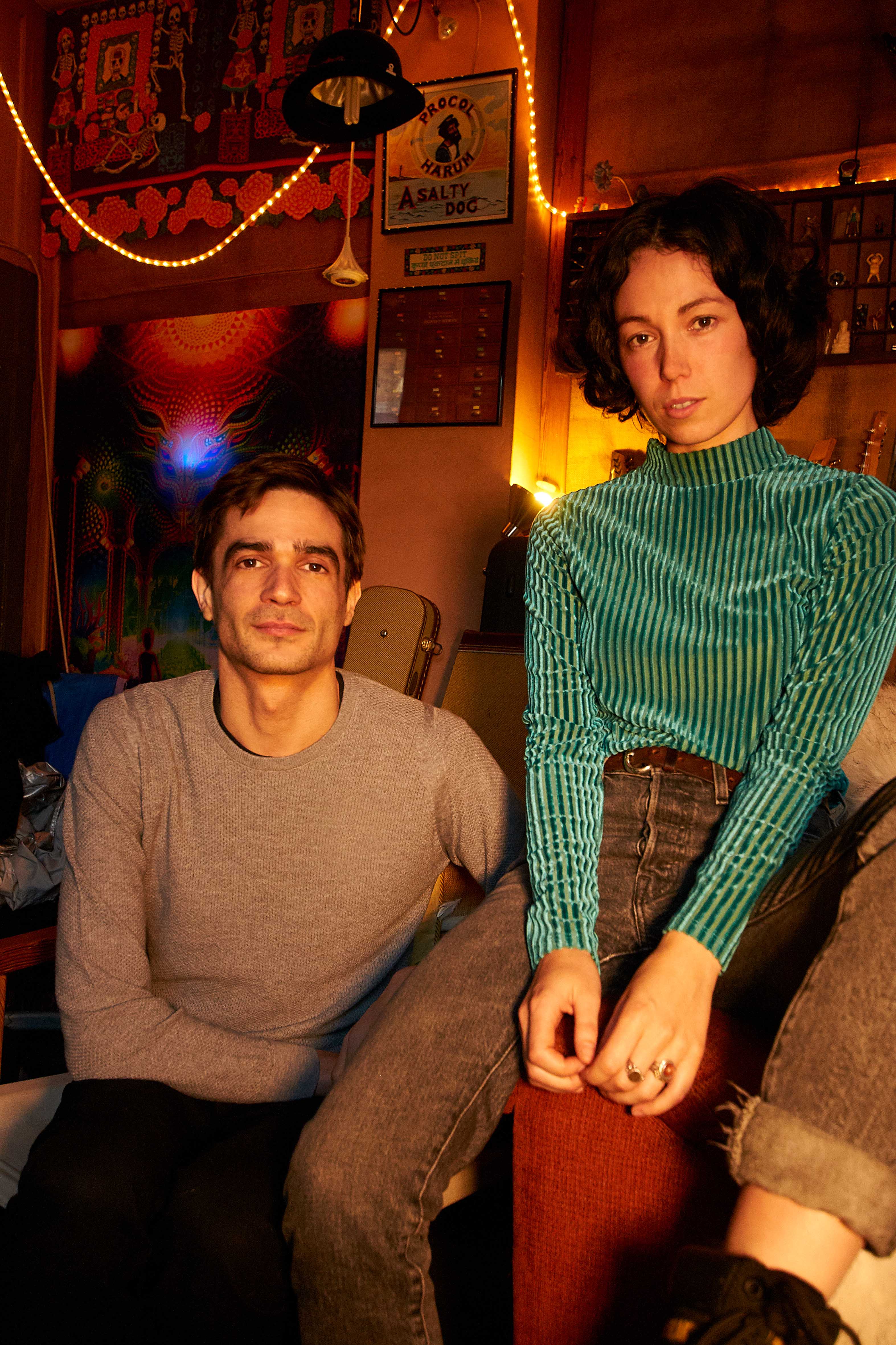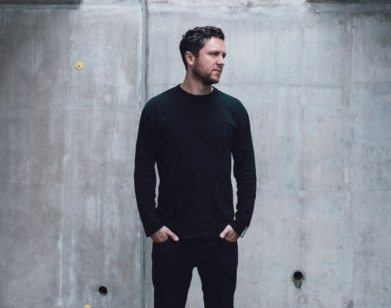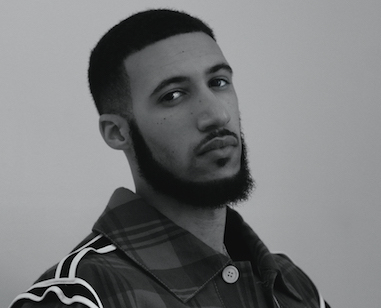Jon Hopkins and Kelly Lee Owens make music that’s yoga for the mind
London-based electronic solo producers Jon Hopkins and Kelly Lee Owens create heightened atmospheric realms with their expansive techno and ambient sounds. Thick and entrancing rhythms transport their audiences into an alternate universe of meditative euphoria—their music is yoga for the mind. In awe of one another’s originality and skill, Hopkins and Owens listen to each other’s respective albums to ignite inspiration.
Best known for beloved 2013 cult album Immunity, Hopkins is one of our most accomplished and original electronic producers working today. Embraced by the legendary Brian Eno as an irreverent influence, Hopkins’s immersive and compelling constellations are charged with emotion and spirituality. Now in charge of his fifth studio album entitled Singularity (Domino), due for release on May 4th, Jon is gearing up for another sell out world tour. A spellbindingly impactful LP, Singularity blends ethereal choruses with nostalgic instrumentals, all constructed around industrious, reverb-heavy noise tunnels. Hopkins’s music conjures the bittersweet feeling of a half-remembered dream.
Kelly Lee Owens produces equally entrancing material. Mentored by good friend and collaborator Daniel Avery, the Smalltown Supersound-signed producer and vocalist writes tracks which embed themselves in your mind. Meditative and drenched in spirituality, Kelly believes in the use of crystals to enhance the quality of her sound. She has been guided towards her signature techno rhythms and soulful melodies through sound therapies and gong baths.
Both artists take a moment to reflect on their processes and discuss their likes and loathes of their chosen craft and creative temperaments.
JON HOPKINS: I first experienced your music when l heard you DJ’ing at a semi-corporate party in Oslo. I have since requested your DJ’ing presence at my shows. I didn’t hear your music until after that. It took me ages because I’m usually five years behind on listening to new stuff. I don’t often feel in the mood to take in new electronic stuff. I’m into a lot of guitar-based instrumental or ambient music, but then I did listen to your record and it was great. I knew it was going to be good because one of my really good friends was into it. What’s the first track called?
KELLY LEE OWENS: “SO.”
HOPKINS: I particularly like that one. It has this quiet head-fuck bass moment, where it sounds like the harmonica is the bass but then it branches off in a different way and as soon as l heard that I thought, “This is my type of thing.”
OWENS: I was adamant that was the first track anyone would hear from me. People’s attention spans are so short these days, so for me, that was an opening and that particular bass sound was what I wanted people to experience as an introduction to my music.
HOPKINS: The vocals on that are really spacey and ethereal.
OWENS: Honestly, those vocals! Half of it was recorded in Dan Avery’s studio, which is a shipping container.
HOPKINS: I keep hearing about this mysterious shipping container which Dan Avery lives in.
OWENS: I love how your sound and your beats can be super hard hitting, like a slam in the production but at the same time, you have so much space. When I was making my album I was super straight edge—no drinking, no drugs, no nothing. Music has always been that expansive field for me, that place to go in and I always feel, when I listen to your music, that’s what happens. You capture attention because rhythmically nothing is quite on and that is something I gravitate towards because I get bored very easily, as do a lot of people.
HOPKINS: I think those two elements, the beats and more expansive stuff that lives behind it, can only work when conducted with each other. I don’t want to make an album which is full of brutal and jarring techno. I am interested in the tension between those two elements and the new album is very much about that. From a technical and mixed point of view, the harder stuff is the hardest to get right, by miles. Sticking the reverbs on is hard. The beats have to be so good to justify their existence in the world.
OWENS: Absolutely. For me, there’s so much alternation. I go in so deep. The rhythm for me is everything; it’s all crafted 100 percent.
HOPKINS: That’s the thing with electronic music, you set up systems to bring in an accident, to bring in quirks you didn’t choose, but you still will have had to set up systems. On the piano, you can randomly improvise little quirks but anything not sterile electronically, you have to set up. It’s nice to embrace that and go deep into it other than just use the sounds that appear.
OWENS: You can still have accidents in sequences. Sometimes something fucks up and goes crazy and you think, “Oh, there it is, there’s that thing I didn’t realize I needed.”
HOPKINS: It’s nice to think along those lines for every element of that. So for example, if I am sat here working and I hear sounds from outside, I capture them.
OWENS: Ironically, I record every day to capture random sounds that can inspire me.
HOPKINS: That’s a slightly different thing because I purposefully don’t take anything with me ever. I only use the things that appear when I can capture them. With my album Immunity and this latest release, any sound you hear was heard in the vicinity of this building. So, the last track on this new album entitled “Recovery” has an owl sample. The track is so simple it’s a like a meditation. I was sat working on the track and my friend who was in Greece had heard a Scots Owl, which is my favorite owl and she sent a recording of the owl to me and the way it sounded with piano in the background sounded so amazing. I just put it in there and it’s the only overtly obvious nature sound on the record.
OWENS: So is it the pure sound of it or have you affected it?
HOPKINS: All I did was stretch it out a bit, so there was more space. So even though it was recorded a phone adds to it. The rubbish quality of the recording.
OWENS: What was your background in music?
HOPKINS: No training.
OWENS: I’m anti-training.
HOPKINS: Me too. I was guided into piano lessons and ‘guided’ is a nice way of saying ‘forced.’ I don’t regret it, but I think music theory as a concept doesn’t work. Music is an expression, a deep-seated feeling. So, without training how did it all begin?
OWENS: Coming from Wales, which is known as land of song, everyone goes to choir from childhood, whether you can sing or not. The male voice is the main component. Older men are the main focus of the choir. In that moment, in that place, they get to express themselves and there is something so hauntingly beautiful about that and the same is true with the harmonies and dissonance. My training comes from that place. My first instrument was my voice.
HOPKINS: I’ve been thinking about this a lot recently, the fact that you are born with a musical instrument just in-built within every person. That is incredible.
OWENS: I have been reading this book called healing sounds and it explores monks and how they have all of these resonant frequencies in their voices. They only need around four to five hours sleep because the specific hertz, 10,000 hertz, can somehow charge the brain. There have been experiments in which monks were stopped from meditating or chanting and they became lethargic and depressed. There’s so much potential with sound vocally.
HOPKINS: I would like to know the specific hertz of that because I don’t sleep very well.
OWENS: I took music at GCSE and made some compositions with friends and I played the drums a little bit. There was a cupboard with 50 African drums at school. I asked if I could do an African drumming competition and my teacher let me do it. So we mixed it up and recorded it onto mini disk and at the time I thought it was wonderful. Then I met Daniel Avery and he asked me to come and do vocals for him and we wrote “Keep Walking,” which is on my album, only when I saw the process in action, when we were working together on analogue synths did I think, “Oh wow, this is something I could really get into. I can bring to life this technology and older format and combine the two.” I used my intuition and just perused whatever felt good.
HOPKINS: I know there are loads of courses you can go on to be taught how to use Ableton and structure tracks. When I was 20, I first got a PC which was capable of multi-track audio. Before then I had to work with 16 channels of out of time midi. I remember ordering all separate parts of a computer and a friend of mine put them together. The excitement of being able to record was great. I taught myself and from there on I dropped the classical training and focused on writing. Writing the first album was such a blissful process. Things change after that. You discover pressures, but that first one, with no expectation, was incredible.
OWENS: You can entirely be yourself, in a pure way.
HOPKINS: It’s different everything feels untouched. I wrote my first work when I was 19, the first three months of my 19th year, and it took a lot longer to work out the production side. It didn’t come out until I was 21. I remember that process was so beautiful, I would work until four in the morning out of desire, not desperate necessity! If I am in this studio most days after 6 P.M. it is because something has gone desperately wrong. Psychologists say that four hours of pure creation is the limit and after that are you drained or exhausted.
OWENS: Yeah after that four hour point I find myself staring out of the window, thinking about food. Something will distract me so I need to take small breaks because I work in such intense bursts. Right now I am working with an engineer. I have been learning to use Logic more in-depth. Before I just couldn’t get the sound I wanted, I have had to learn to be patient with myself and other people. I like to find that balance, otherwise you start to feel jaded.
HOPKINS: What do you do in your breaks when you step out of the studio?
OWENS: I work by the water, the river Thames and water is essential to my sound. I would just have tea or coffee every couple of hours.
HOPKINS: When did you first get interested in crystals and new age spirituality?
OWENS: Scientifically, everything has energy and vibrates and has a resonance. There are some things that really capture that and you can work with. The more I got into meditation and crystals and understanding energy, it led me to understand sounds. Which is what I ended up doing: Shaping energy and sounds.
HOPKINS: What form of meditation do you do?
OWENS: Mostly sound meditation because I find it very difficult to be in silence. So mostly gongs and crystal balls.
HOPKINS: So, you put recordings on?
OWENS: No I go to gong sound baths.
HOPKINS: I go to psychedelic gong baths. No one is on psychedelics, but it is organised by the psychedelic society. Psychedelia is a state.
OWENS: Yes, it’s the ability to enter and explore our consciousness.
SINGULARITY (DOMINO) WILL BE RELEASED ON MAY 4, 2018.





